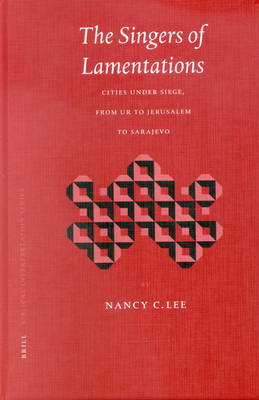Biblical Interpretation
1 primary work
Book 60
The author analyzes the poetic songs of biblical Lamentations with oral-poetic folkloric method for the first time with surprising results. Contemporary lament poems are then compared from recent post-war Croatia and Bosnia-Herzegovina about suffering in cities under siege.
Oral-poetic and socio-rhetorical methods illumine two lead singers in dialogue in a mourning context, employing formulas and themes of dirge, psalmic and prophetic traditions in their compositions, but infusing these with their individual artistry to respond to Jerusalem's destruction.
Poets through history and across cultures share common ground in how they render the suffering of their war-torn cities. The prophet Jeremiah emerges in Lamentations as one lead singer by virtue of how he modifies traditional formulas (imagery, themes, terms) in response to the context. A woman emerges as another lead singer who pushes the limits of current theology in crisis.
Oral-poetic and socio-rhetorical methods illumine two lead singers in dialogue in a mourning context, employing formulas and themes of dirge, psalmic and prophetic traditions in their compositions, but infusing these with their individual artistry to respond to Jerusalem's destruction.
Poets through history and across cultures share common ground in how they render the suffering of their war-torn cities. The prophet Jeremiah emerges in Lamentations as one lead singer by virtue of how he modifies traditional formulas (imagery, themes, terms) in response to the context. A woman emerges as another lead singer who pushes the limits of current theology in crisis.
